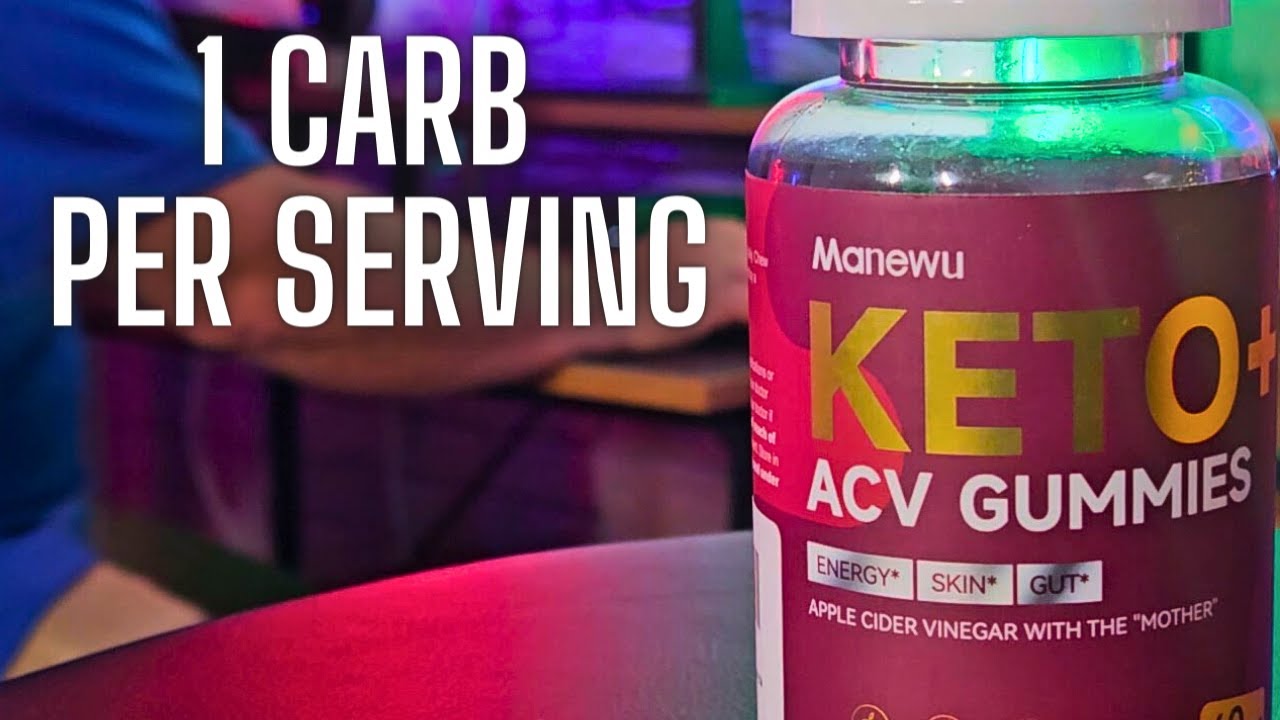Understanding Weight Loss Gummies
Weight loss gummies have emerged as a popular trend among those seeking a convenient and tasty solution for their weight management goals. Promoted as effective dietary supplements, these gummies often claim to help curb appetite, boost metabolism, and facilitate fat loss. The allure of weight loss gummies lies not only in their sweet flavor and chewable texture but also in the promise of effortless weight loss without the need for rigorous diets or exercise. This has made them increasingly appealing to a wide demographic, including busy professionals, college students, and anyone looking for an easier path to weight management.

However, these products have prompted numerous questions regarding their actual efficacy and safety. With an influx of brands and varieties on the market, consumers often find themselves bewildered by the overwhelming options and marketing claims. Many people are left wondering: Do weight loss gummies really work? To answer this question, we will delve deeper into the ingredients commonly found in these gummies, examine their proposed benefits, and take a closer look at existing research to understand the science behind them. This exploration will provide valuable insights into whether these trendy supplements are worth the investment or merely a sugary illusion.
Understanding how weight loss gummies work requires looking beyond the buzzwords and clever marketing. The active ingredients, often derived from natural sources such as apple cider vinegar, extracts from Garcinia Cambogia, or dietary fibers like glucomannan, play a crucial role in their claimed effects. While some of these ingredients have shown potential in scientific studies to facilitate weight loss, the results vary significantly among individuals. Additionally, gummy forms of these compounds may not always deliver the same dosage or effectiveness as their traditional counterparts, such as capsules or powders. In the following sections, we will explore six science-backed facts that will illuminate the potential benefits and limitations of weight loss gummies.
Composition of Weight Loss Gummies
One of the fundamental aspects to consider when examining weight loss gummies is their composition. These gummies typically contain a variety of ingredients that are marketed for weight loss, including vitamins, minerals, herbs, and other active compounds. Common ingredients include Apple Cider Vinegar (ACV), Garcinia Cambogia, Green Tea Extract, and B vitamins. Each ingredient claims to play a unique role in supporting weight management, whether it be through appetite suppression, fat oxidation, or metabolism enhancement.
Apple Cider Vinegar is one of the most talked-about components and often features prominently in weight loss products. Research has suggested that ACV may contribute to feelings of fullness, which could help reduce overall calorie intake. Garcinia Cambogia, on the other hand, contains hydroxy citric acid (HCA) that is believed to inhibit fat production and increase serotonin levels, potentially curbing cravings. Understanding the specific roles each ingredient plays can help consumers make informed decisions about which products may be beneficial for their weight loss journeys.
Another important consideration is the sugar content often found in these gummies. While they are marketed as a tasty alternative to pills and powders, many weight loss gummies contain added sugars or sweeteners that can add extra calories to a person’s diet. This raises a critical question about their effectiveness: Do the benefits of the ingredients outweigh the potential caloric increase from sugars? Evaluating the nutritional label is crucial to understanding not just the active ingredients but also the overall caloric impact of weight loss gummies.
The Role of Appetite Suppressants
Appetite suppressants are a noteworthy focus in the conversation surrounding weight loss supplements, including gummies. Many users hope to find a solution that effectively helps them control their hunger and therefore manage their food intake. Some weight loss gummies contain ingredients specifically marketed as appetite suppressants, such as glucomannan, a soluble dietary fiber derived from the konjac root. When ingested, glucomannan expands in the stomach by absorbing water, leading to a feeling of fullness.

The effectiveness of these appetite-suppressing ingredients is documented in some studies, where individuals reported reduced hunger and lower calorie consumption. However, there is a caveat: not all appetite suppressants work in the same way for everyone. Individual metabolism, lifestyle, and genetic factors can all influence how effective a gummy may be in terms of appetite control. Therefore, while some may experience satisfying results with weight loss gummies, others might see little to no impact.
Moreover, the psychological aspect of eating shouldn’t be ignored. Sometimes, the very act of taking a supplement branded as an appetite suppressant can lead to a placebo effect, where the user feels less hungry simply because of a belief in the product’s effectiveness. This psychological element, coupled with actual pharmacological effects, creates a nuanced experience where weight loss gummies might indeed be effective for some while falling flat for others. Evaluating personal experiences and understanding the ingredients involved are integral to gauging the actual effects of gummies as appetite suppressants.
Metabolism Enhancement: Fact or Fiction?
The claim that weight loss gummies can enhance metabolism is another crucial point that often comes up in discussions. Metabolism refers to the chemical processes in the body that convert food into energy. A higher metabolic rate means the body burns calories more efficiently, which is critical for weight loss. Some ingredients found in weight loss gummies, such as Green Tea Extract and caffeine, have shown potential to boost metabolic rates temporarily.
Research has suggested that compounds such as catechins found in green tea can increase fat oxidation and overall energy expenditure, which could support weight management. However, the degree to which these metabolism-enhancing effects occur can vary based on numerous factors, including an individual’s baseline metabolic rate, lifestyle, and dietary habits. Moreover, the amount of active ingredients available in gummy form may not deliver the same potent effects as concentrated supplements.
This raises an important consideration: while some users may experience an increase in metabolism and subsequent caloric burn after consuming gummies, others may not notice significant changes. Additionally, relying solely on metabolic boosters without accompanying lifestyle changes, like improved diet and physical activity, is unlikely to yield sustainable weight loss results. Thus, while metabolism enhancement can theoretically contribute to weight loss, it is essential to adopt a holistic approach to health for long-term success.
Realistic Expectations and Lifestyle Integration
When considering weight loss gummies, it is important for consumers to maintain realistic expectations. Many individuals are drawn to the idea that a simple gummy can serve as an all-in-one solution for weight loss without the need for dietary adjustments or exercise. However, experts emphasize that weight loss is generally a multi-faceted process that requires a combination of healthy eating, physical activity, and behavioral changes. Relying solely on weight loss gummies without modifying unhealthy habits may not lead to the desired outcomes.
Integrating weight loss gummies into a balanced lifestyle is vital. They should not be viewed as a replacement for healthy eating and exercise but rather as supportive supplements that might enhance efforts. For example, if someone is working on reducing their calorie intake while increasing their physical activity, gummies could complement these efforts by helping manage appetite or providing a mood boost from the vitamins and minerals they contain.
Furthermore, success stories often shared by brands can lead to unrealistic expectations. While some individuals may genuinely succeed in their weight loss journey and credit gummies for their progress, these stories do not represent the average experience. A transparent understanding of what these supplements can and cannot do is crucial. Education, holistic health practices, and personalized approaches to diet and exercise remain fundamental to achieving and sustaining weight loss goals over time.
Clarifying Common Misconceptions
With the internet flooded with information, it is easy for consumers to develop misconceptions about weight loss gummies. One of the most prevalent myths is that they provide an easy fix for losing weight. As previously discussed, weight loss is often a complex interplay of numerous factors, including genetics, lifestyle, and dietary habits. Gummies cannot replace the essential components of a healthy weight management plan, such as a balanced diet and regular physical activity. Instead, they should be viewed as supplementary aids rather than standalone solutions.
Another misconception is that all weight loss gummies are created equal. The reality is that the efficacy and safety of these products can vary widely depending on their ingredients and manufacturing practices. Not all formulations will contain effective dosages of active compounds, and some may include unwanted additives or excessive sugars. Thus, it is crucial for consumers to carefully scrutinize labels and understand what they are ingesting when choosing a gummy supplement.
Lastly, the misconception that weight loss gummies are entirely safe without any side effects must be addressed. Each individual’s body responds differently to supplements, and some may experience adverse reactions, particularly if they are sensitive to specific ingredients or hormones. It is advisable for individuals to consult with healthcare professionals before starting any new supplement regimen, especially if they have pre-existing health conditions or take medication. Being informed and vigilant can help consumers avoid pitfalls and make educated choices regarding weight loss gummies.
Insights and Inquiries
As consumers dive deeper into the world of weight loss supplements, many questions arise regarding the effectiveness, safety, and long-term implications of weight loss gummies. One common inquiry is whether these products are clinically proven. While some ingredients have been studied for their weight loss potential, not all weight loss gummies undergo rigorous clinical trials to confirm their claims and effectiveness. This raises concerns about the reliability of the marketed benefits and results.
Furthermore, users often wonder about the ideal dosage and frequency for consuming weight loss gummies. There is no one-size-fits-all answer, as it ultimately depends on individual body types, weight loss goals, and the specific ingredients included in the gummies. Following manufacturer recommendations and consulting with a healthcare professional for personalized advice can be beneficial in determining the most suitable approach.
Lastly, individuals frequently ask about the possible side effects. While many people may enjoy weight loss gummies without any issues, others may experience gastrointestinal discomfort, allergic reactions, or other adverse effects based on the ingredients. Therefore, understanding one’s body and how it reacts to different components is essential. Always reading labels and being aware of individual sensitivities ensures a safer and more effective experience.
In conclusion, while weight loss gummies present an appealing option for those seeking a flavorful supplement to aid in their weight loss journeys, it is essential to approach them with a discerning mindset. By understanding their composition, effectiveness, and role within a balanced lifestyle, individuals can make informed decisions that align with their long-term health objectives.


